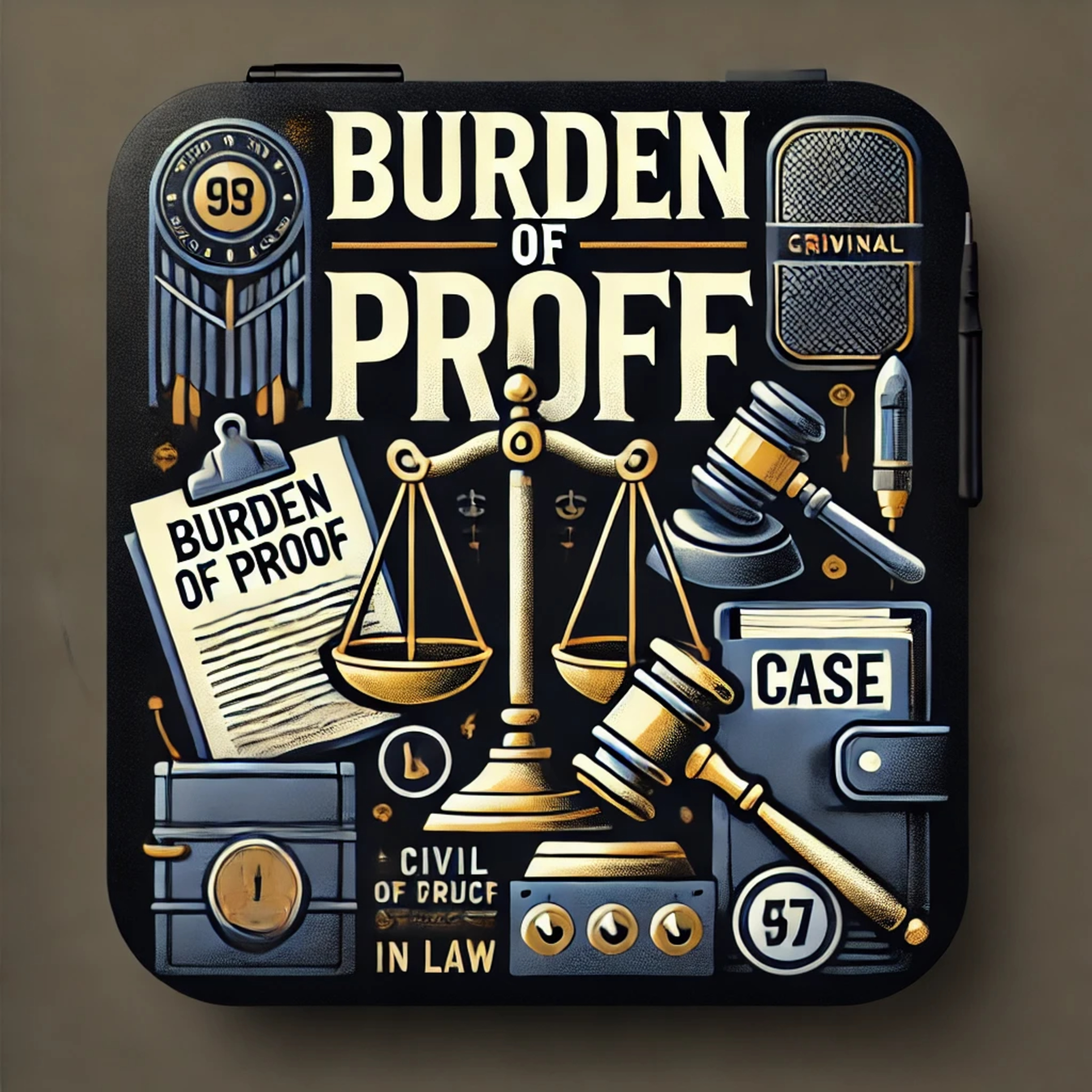Podcast Episode Details
Back to Podcast Episodes
Fundamental Doctrines Lecture Fifty-Seven - Burden of Proof: Civil and Criminal Standards Compared
This conversation delves into the concept of the burden of proof, exploring its complexities and significance in legal contexts. It distinguishes between the burden of production and the burden of persuasion, outlines various standards of proof, and discusses the rationale behind different burdens in criminal and civil cases. The dialogue also addresses modern academic critiques and practical challenges in applying these legal principles, emphasizing the importance of evidence and the implications of emerging technologies in the legal system.
In the intricate world of law, the concept of the "burden of proof" stands as a cornerstone. Imagine a courtroom where the scales of justice are delicately balanced, waiting for the evidence to tip them. This burden determines who must prove their case and to what extent, shaping the outcome of legal proceedings.
The Basics of Burden of Proof: At its core, the burden of proof is about responsibility. In criminal cases, this burden lies with the prosecution, who must prove the defendant's guilt "beyond a reasonable doubt." This high standard reflects the serious consequences of a criminal conviction. In civil cases, the burden is typically "on the balance of probabilities," meaning the plaintiff must show that their claims are more likely true than not.
Shifting the Burden: Interestingly, the burden of proof can shift during a trial. For instance, once the prosecution establishes a prima facie case, the defense may need to present evidence to counter the claims. This dynamic interplay ensures that both parties have a fair opportunity to present their case.
Understanding the burden of proof is crucial for anyone involved in legal proceedings. It not only dictates the flow of a trial but also underscores the fundamental principle of justice: that one is innocent until proven guilty. As you navigate the legal landscape, remember that the burden of proof is more than a procedural rule—it's a safeguard of fairness and justice.
Subscribe Now: Stay informed about the intricacies of the legal world. Subscribe now for more insights and updates.
Published on 3 months, 2 weeks ago